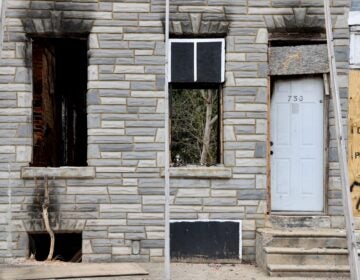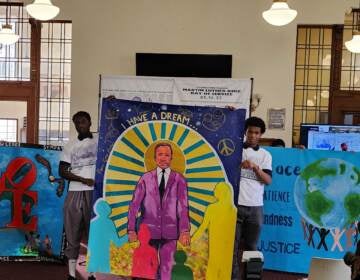Unpacking Martin Luther King Jr.’s ‘mountains’ 60 years after Spelman speech
Panelists at WHYY and NewCORE’s “Conversations of King” event consider the “mountains” of relativism, materialism, segregation and violence in 2020.
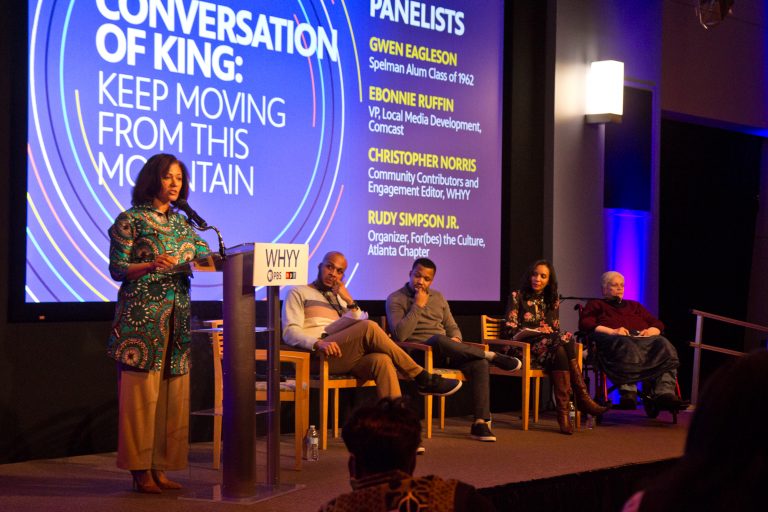
Kimya Johnson (left) Spelman alumna and chair of the diversity and inclusion legal practice group at Ogletree Deakins, moderates a discussion during 'Conversations of King: Keep Moving from This Mountain’ event at WHYY studios. (Kimberly Paynter/WHYY)
Carlo Campbell took the stage as Dr. Martin Luther King Jr., re-enacting his speech, “Keep Moving from This Mountain.”
In his deep, rumbling voice, he proclaimed: “You must never become bogged down in mountains and situations that impede your progress. You must never become complacently adjusted to unobtained goals; you have been in this mountain long enough, ‘turn ye and take your journey.’”
Campbell, actor and founder of Theatre in the X in West Philly, performed King’s April 10, 1960 address to Spelman College at WHYY Friday evening as part of the annual “Conversation on King” event.
The annual event was hosted by WHYY, along with interfaith group NewCORE, and also featured a panel discussion moderated by community leader Kimya Johnson, a Spelman alumna and chair of the diversity and inclusion legal practice group at Ogletree Deakins.
The panel featured Rudy Simpson Jr., sponsorship director of “We Buy Black;” Christopher Norris, WHYY’s community contributions and engagement editor; Ebonne Ruffins, a Spelman alumna and vice president of local media development at Comcast; and Gwen Eagleson, a Landsdale resident who heard King deliver the speech as a student at Spelman in 1960.
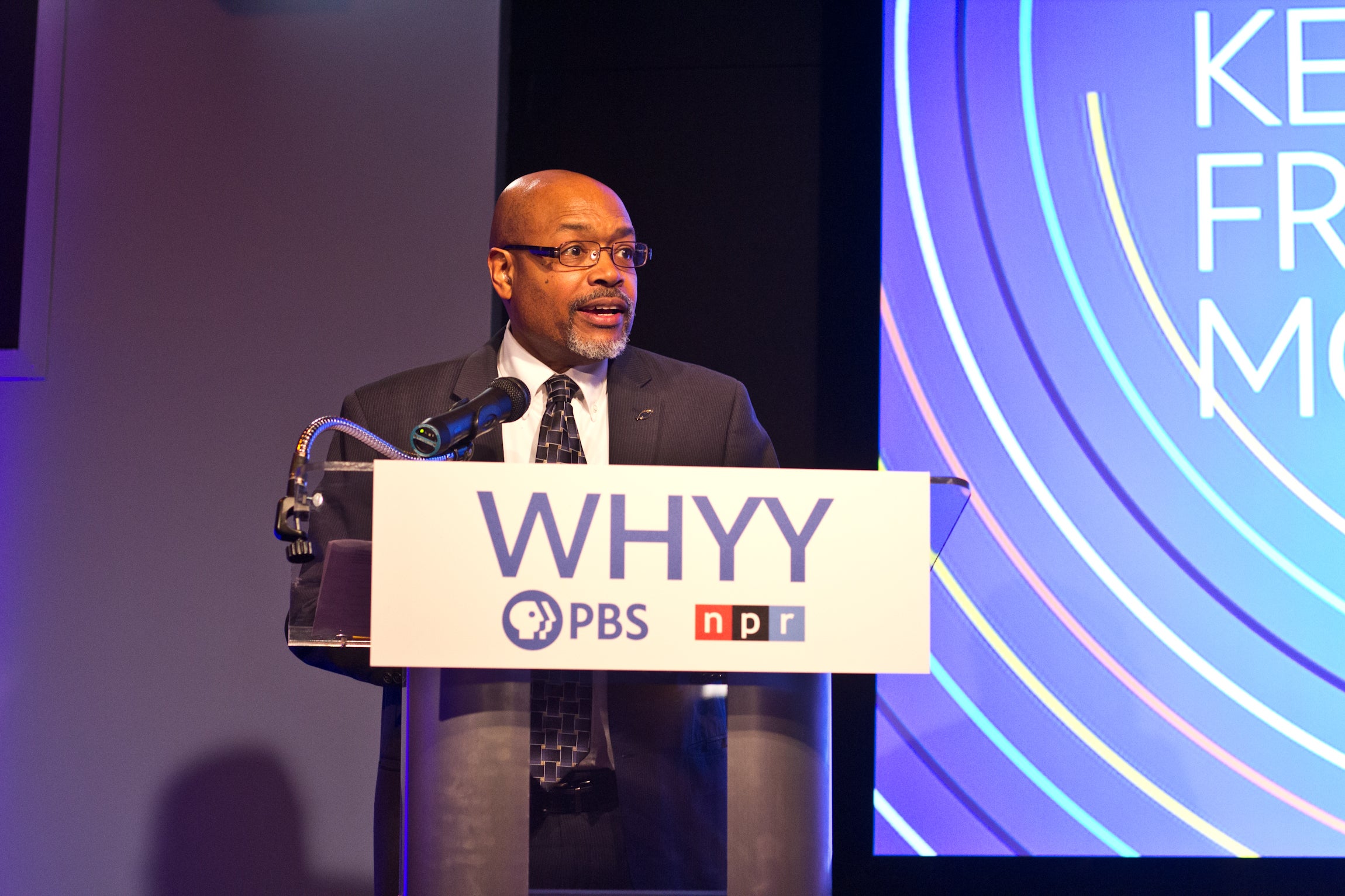
Each panelist dissected one of the four symbolic “mountains” in King’s speech — relativism, materialism, segregation and violence — that King believed society must overcome.
The first “mountain” is moral and ethical relativism, which is the idea “that right and wrong is subjective,” Norris said.
Norris gave the example of President Donald Trump’s June 2019 interview with George Stephanopoulos on ABC, where Trump admitted he would accept information about his opponent from a foreign country.
Every Congress member does it, Trump said. “It’s called oppo research.”
“We can’t agree on what’s right and wrong anymore, and that’s a mountain that we need to move away from,” Norris said.
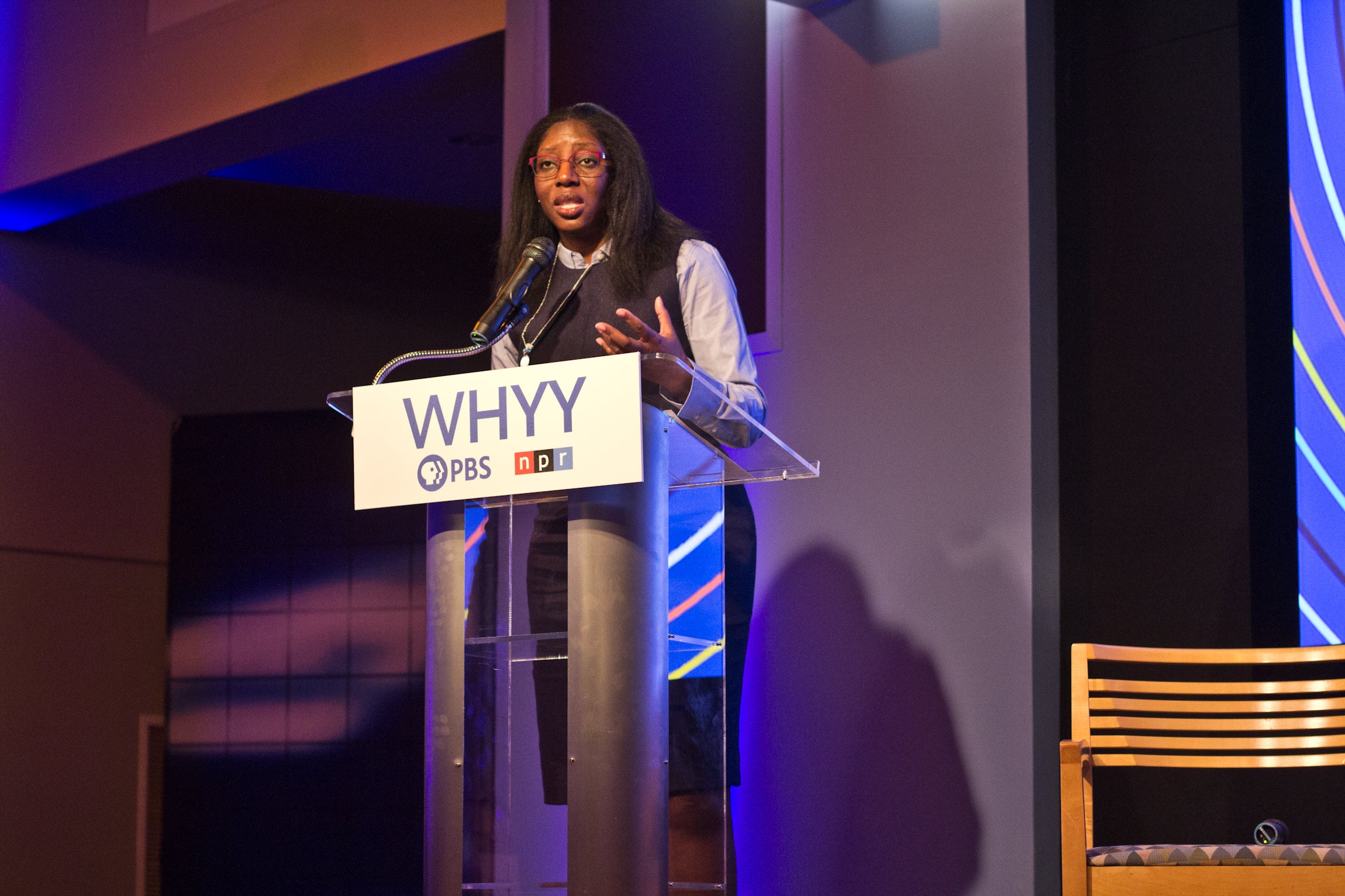
Ruffins reflected on the mountain of materialism.
While praising the “marvelous” things capitalism had done for the U.S. and the world, King cautioned against becoming “so involved in the profit-making and profit-getting aspects of capitalism that we will forget certain ends of life.”
Ruffins recalled her visit to the Legacy Museum in Montgomery, Alabama, where she saw the connections between American slavery, the civil rights movement against segregation and mass incarceration.
“The root of all of that is capitalism,” said Ruffins. “It’s around profit, around our becoming the world’s cotton-bearer, and building up the infrastructure of this country. And it’s not something that we will ever be able to recover from.”
Ruffins summarized King’s original inquiry to the nation, a question yet unanswered 60 years after the civil rights leader first posed it: “As a remedy, what can we do so that, in addition to making money, we can still remember our calling as humans to each other, and our responsibility to not forget the ‘ends of life’?”
Moving to the mountain of segregation, Eagleson shared her thoughts on King’s words and her experiences growing up in the South.
In her life, said Eagleson, “it was whites segregated from Blacks. Whites felt that they were the privileged ones. They could do anything that they wanted to do, and they could do anything to Blacks that they wanted to do.”
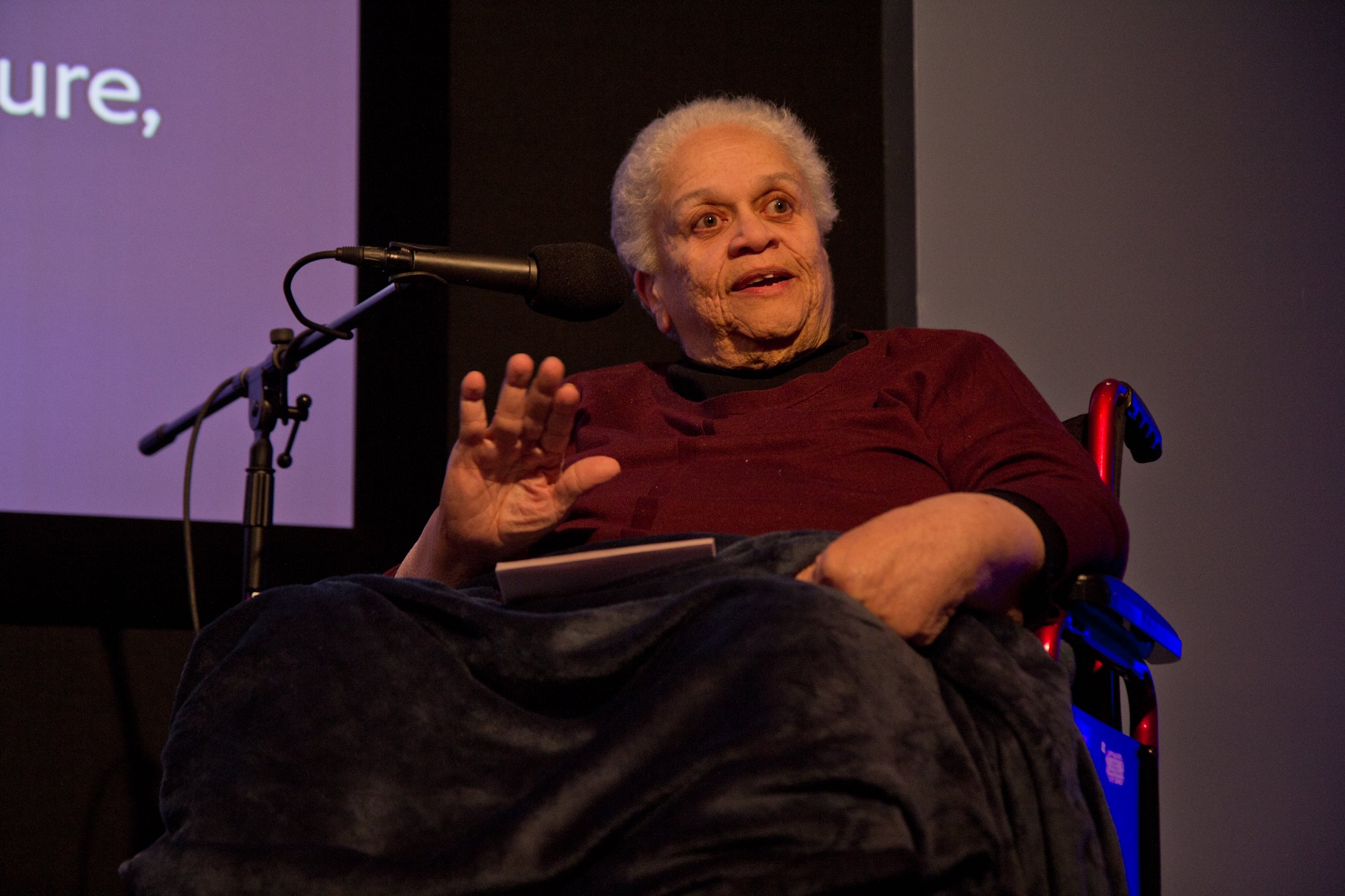
In his speech, King described segregation as “a cancer in the body politic which must be removed before our democratic health can be realized.” Eagleson went further, calling it a “cancer we have not cured yet. Please believe we have not cured segregation yet.”
Eagleson then addressed the audience of about 50 people: “Do not have the strange thought that because we’re sitting here in a mixed crowd that segregation has been cured.”
“Because we have not cured cancer, cancer kills you,” she added. The audience stirred with murmurs of agreement.

Johnson asked Simpson about the final mountain: violence. Simpson spoke of his mother, who is constantly worried about his 25-year-old brother in the Navy.
Instead of allocating money to fight wars, Simpson suggested “we could work on the war on drugs, the war on education, within our homes, so that my mom can smile a little better at night.”
Johnson concluded the panel discussion with one last quote from King’s address: “We will go on in spite of the obstacles, in spite of the difficulty, in spite of the sacrifices that we will have to make. The basic thing is to keep moving.”
WHYY is your source for fact-based, in-depth journalism and information. As a nonprofit organization, we rely on financial support from readers like you. Please give today.


